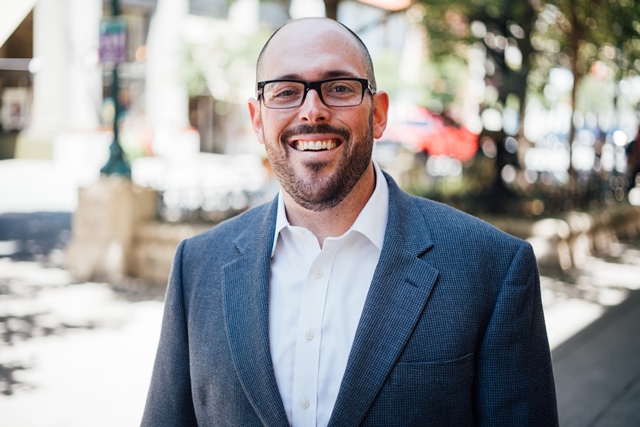Are you feeling stressed out and overwhelmed? If so, you’re not alone. According to Gallup, 80% of Americans are afflicted by stress (Given the current state of the world, it’s probably closer to 90 or 100 percent). Its sources are endless: the news, responsibilities at home and work, your side hustles, social media, friends—even the fitness tracker on your wrist that reminds you every day you’re not reaching your fitness goals.
Thankfully, we all possess the superpower needed to defeat stress; we just have to activate it. According to renowned performance psychologist and bestselling author Dr. Jim Afremow, we feel scattered and stressed when we’re unfocused. So, by increasing our focus, we decrease our stress. Here are seven steps you can take right now to unlock this superpower today.
#1 Check in with yourself

Unsplash // Laurenz Kleinheider
Whenever you face challenges, checking in with yourself is a great first step to dealing with them effectively. It helps to build your self-awareness, which is critical when you’re trying to do something that stretches you beyond your limits. When you check in with yourself, you can see where you are and where you’ve been, then look out into the future to determine where you want to go. Think of it like one of those maps at the mall that say “You are here.” Once you have that information, you’ll be better equipped to get where you want to go.
#2 Breathe

Image credit: Unsplash // Pavel Lozovikov
The hardest part of checking in with yourself is listening to your body. If you struggle with this, you can use breathing to help you. If you find yourself overwhelmed or stressed, it’s because you’re breathing too shallow, which is causing your nervous system to respond accordingly. Intentional, deep breathing has been shown to quell unnecessary stress responses, and forces you to be present in the moment, not distracted by the past or worried about the future. There are a wide variety of apps and methodologies to help you facilitate breathing, but the goal is to slow down, breathe deep, and in that quiet space, examine the present moment.
#3 Assess

Lou Holtz, the college Hall of Fame football coach, was once asked how he managed to win in so many areas of his life. His response was simple: no matter what he was doing, he would always ask himself, “What’s important now?” In other words, he assessed every situation, found the top priority, and focused on it. As you’re breathing deep and being present in the moment, search for the most important part of what you’re doing, whether you’re at home or work. Make sure you have it clearly in your mind because the next step demands a high level of clarity.
#4 Communicate

Once you’ve done the assessment and you understand what is important now, you need to communicate that to those around you. After all, this new, empowering information does little good if it’s locked up inside your head. If you don’t communicate, no one will know what you’re feeling, what you’re dealing with, what you’re trying to accomplish, or what they can take off of your plate for you. It’s only through communication that the next step becomes possible.
#5 Decide

At this point, you’re ready to approach your top priority in one of four ways: do it, delay it, delete it, or delegate it. If it’s urgent, you can do it, which is self-explanatory. If it’s important but not urgent, you can delay it by putting it on tomorrow’s to-do list. If you decide the task isn’t helpful to your immediate or long-term goals, delete it and get it out of your mind. Finally, if something cannot be delayed but you don’t have the ability or the time to do it, you must delegate it. If you don’t, you’ll go right back to feeling overwhelmed and stressed. These last two – delete and delegate – are more important today than ever before.
#6 Focus

Now that you know what you’re going to do, you must train your mind to bring your mood, your awareness, and your attention all together to focus on this one task. Shut everything else down, set an alarm for twenty-five minutes, and work on that single task. Then take a break, and if you’re not done, go for another twenty-five minutes on that single task until you are done or you need to move on because something else can no longer be delayed. A few critical hazards to avoid during these focus times are distractions like media outlets, email and social media.
#7 Make it a discipline

This is the most important step because when you’re feeling comfortable, it’s easy to slide back into bad habits that cause things to go awry and land us in another stressful situation. You have to make it a discipline to check in yourself every day. Set an alarm on your Fitbit or phone every couple hours that reminds you to pause, take five deep, intentional breaths, and be present in the moment. When you do this, can assess the situation, communicate, know whether you need to do, delay, delete, or delegate something, and be armed with the ability to focus.
Your turn
Did I miss anything? How do you manage stress, especially in times like these?
Mike Flynn is an advisor, podcast host, writer, and sought-after speaker who is passionate about helping others make a big impact. This article is adapted from his bestselling book, Master the Key.


